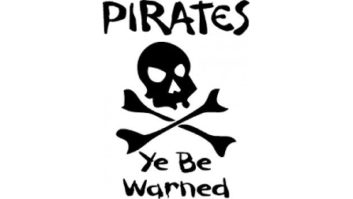The FCC has fewer field offices these days. But it’s trying to do a better job of informing the public about enforcement activities it has been doing and that it continues to carry out.
Users of the commission’s popular Daily Digest email report have noticed a flood of items in recent days about efforts against illegal radio activities. The FCC decided to include “notices of unlicensed operations,” issued by field offices, in the digest. Until recently, these were public but usually only on the commission website. More advanced enforcement actions have been listed in the digest, typically notices of apparent liability for forfeiture.
The goal, said an FCC spokesperson, is to ensure that the public is better informed about efforts of the field offices. “Combating unlicensed broadcasts is an enforcement priority for Chairman [Ajit] Pai.”
This year, there have been 71 Notices of Violation or Notices of Unlicensed Operation issued by field offices through Aug. 11, according to an FCC summary page.
Notices recently have been handed out in locales ranging from mid-size towns to populous cities. Each was issued by agents of the FCC’s Enforcement Bureau for the alleged operation on a radio frequency at a certain field strength without a license. Each has been given 10 days from the date of the notice to respond with evidence that they have authority to operate, or watch out for monetary fines and — theoretically, at least — potential imprisonment.
[Read an FCC Enforcement Primer]
How are they found? “In general, the commission looks to the field work of FCC agents, consumer complaints, notice from broadcasters, cooperation with law enforcement partners and public resources as key tools in locating and addressing pirate radio,” the spokesperson said.
Of 10 notices over a recent two-day period, eight were from the field office in Miami. For example, Jean Carries from Oakland Park, Fla., is identified as the owner of a residential property where an unlicensed FM station was operating on 90.1 MHz. Michael Palache of West Palm Beach, Fla., told enforcement agents that he was operating a station on 94.7 MHz, according to another notice.
Similar notices were sent to Ernest J. Nardi of Brooklyn after agents from the New York office confirmed with Nardi that he had no authorization to operate a radio station that was emanating from his residence on 103.1 MHz.
All the way across the country in San Jose, Calif., Stewart Kantor was notified of apparently illegal operation after a complaint was lodged by Verizon Wireless. The company stated that an unknown signal was causing interference to their C Block Upper MHz band service, which interfered with more than 200 Verizon sites in the area, according to the San Francisco enforcement office. Using direction-finding techniques, the commission said, agents confirmed that a wideband radio signal was emanating from a residence and that Kantor was identified as the owner of the device. In addition to needing authority to operate a device such as this one, users must also have a station license.










